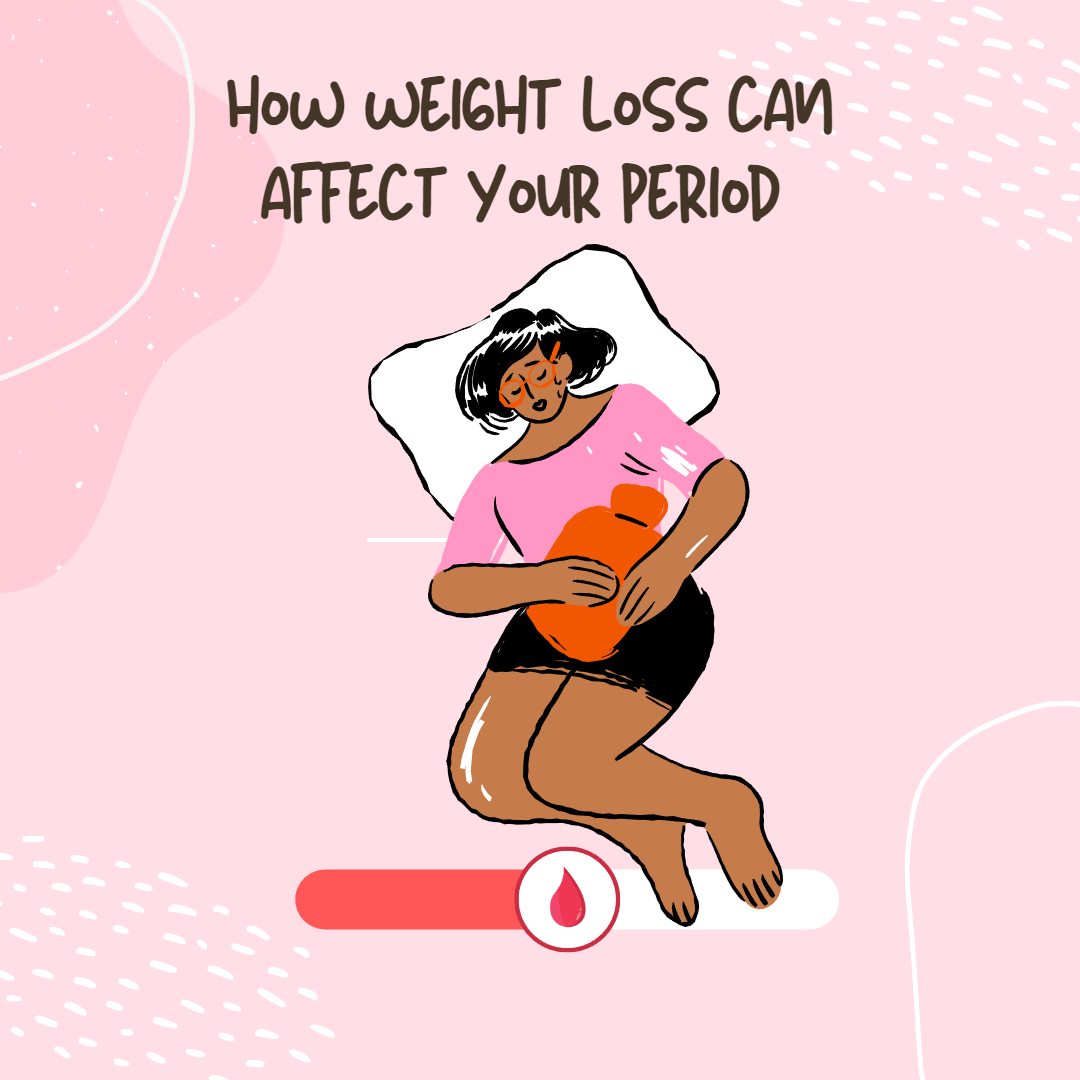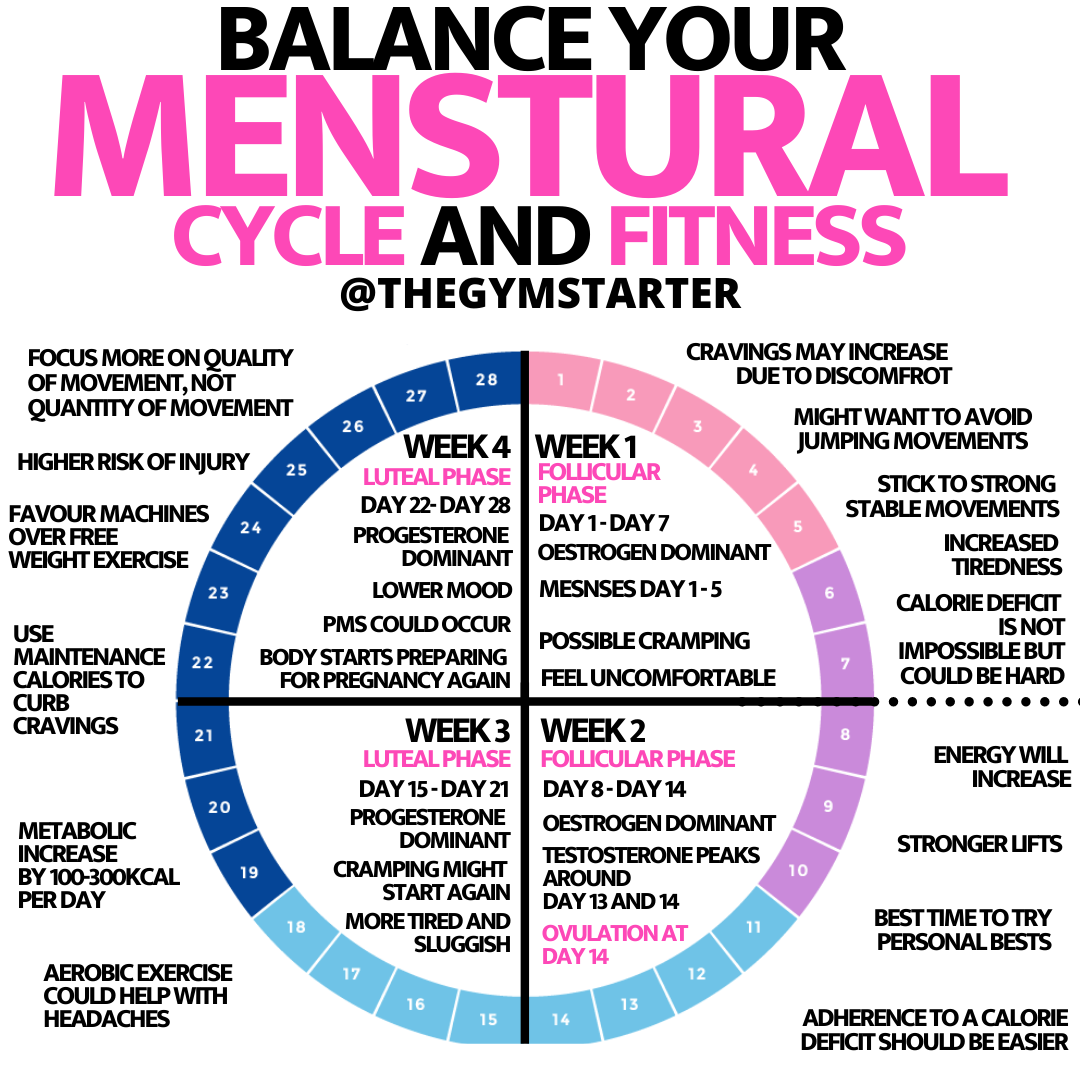Losing a significant amount of weight can have a profound impact on various aspects of your health, including your menstrual cycle. The intricate connection between weight loss and menstruation remains a topic of interest and debate among experts. With numerous studies suggesting a potential link, many women have wondered whether shedding those extra pounds could lead to changes in their menstrual cycle. In this article, we will explore this intriguing question and provide you with valuable insights into the potential effects of significant weight loss on your menstrual cycle. So, if you’ve embarked on a weight loss journey or are simply curious about the topic, keep reading to discover what you need to know.
1. What is the Menstrual Cycle?
The menstrual cycle is a natural process that occurs in the female body, typically lasting around 28 days. It involves a series of hormonal changes and physical processes that prepare the body for potential pregnancy.
1.1 The Basics of the Menstrual Cycle
The menstrual cycle consists of four main phases: menstruation, follicular phase, ovulation, and luteal phase. Menstruation marks the beginning of the cycle, where the uterine lining sheds, resulting in menstrual bleeding.
1.2 Phases of the Menstrual Cycle
Following menstruation, the follicular phase begins. During this phase, the pituitary gland releases follicle-stimulating hormone (FSH), which stimulates the development of ovarian follicles. These follicles produce estrogen, which prepares the uterus for potential pregnancy. Ovulation occurs around day 14 of the cycle when a mature egg is released from the ovary. If the egg is fertilized by sperm, it may result in pregnancy. The luteal phase follows ovulation, during which the ruptured follicle transforms into the corpus luteum, producing progesterone to support the potential implantation of a fertilized egg.
2. Understanding Weight Loss
Weight loss refers to the reduction of body weight, usually with the goal of improving health, aesthetics, or performance. It can be achieved through changes in diet, physical activity, and lifestyle choices.
2.1 The Impact of Weight Loss on the Body
weight loss can have both positive and negative effects on the body. It can improve cardiovascular health, lower the risk of chronic diseases like diabetes and hypertension, and boost self-esteem. Additionally, weight loss can lead to improved body composition, increased muscle mass, and enhanced physical fitness. However, it is crucial to approach weight loss in a healthy and sustainable manner to avoid negative consequences on overall well-being.
2.2 Factors Contributing to Weight Loss
Various factors contribute to weight loss, including calorie intake, physical activity levels, metabolism, and genetics. A calorie deficit, where the energy expended exceeds the energy consumed, is typically necessary for weight loss. However, the rate and magnitude of weight loss can vary among individuals due to the interplay of these factors.
3. The Relationship between Weight Loss and Menstrual Cycle
Weight loss can potentially impact the menstrual cycle, causing changes in hormone levels, menstrual flow, and duration.
3.1 Effects of Weight Loss on Hormone Levels
Weight loss, especially in cases of rapid and significant loss, can disrupt the delicate balance of hormones in the body. It can lead to a decrease in estrogen levels, which may have implications for the normal functioning of the menstrual cycle. Estrogen is essential for the growth of the uterine lining and the development of follicles. Reduced estrogen levels can disrupt the regularity of ovulation and alter the timing and length of the menstrual cycle.
3.2 Changes in Menstrual Flow and Duration
Weight loss can also affect the menstrual flow and duration. It is not uncommon for women experiencing weight loss to report changes in the amount and consistency of menstrual blood. Some may notice lighter or heavier flows, while others may experience irregular or prolonged periods. These changes can be attributed to the fluctuations in hormone levels and the body’s response to weight loss.
4. Hormonal Imbalance and Irregular Menstrual Cycles
Hormonal imbalance is a common consequence of weight loss and can significantly impact the regularity and predictability of the menstrual cycle.
4.1 Estrogen and Progesterone Levels
Estrogen and progesterone are the two main hormones involved in regulating the menstrual cycle. Estrogen is primarily responsible for the growth of the uterine lining, while progesterone helps prepare the uterus for potential pregnancy. Weight loss can disrupt the delicate balance between these hormones, leading to irregularities in the menstrual cycle.
4.2 Impact of Hormonal Imbalance on Menstrual Cycle
Hormonal imbalances resulting from weight loss can lead to irregular menstrual cycles, characterized by missed periods, longer or shorter cycles, or abnormal bleeding patterns. This can be concerning for women trying to conceive, as irregular cycles may make it difficult to accurately determine the fertile window. Additionally, hormonal imbalances can affect overall reproductive health and increase the risk of certain gynecological conditions.
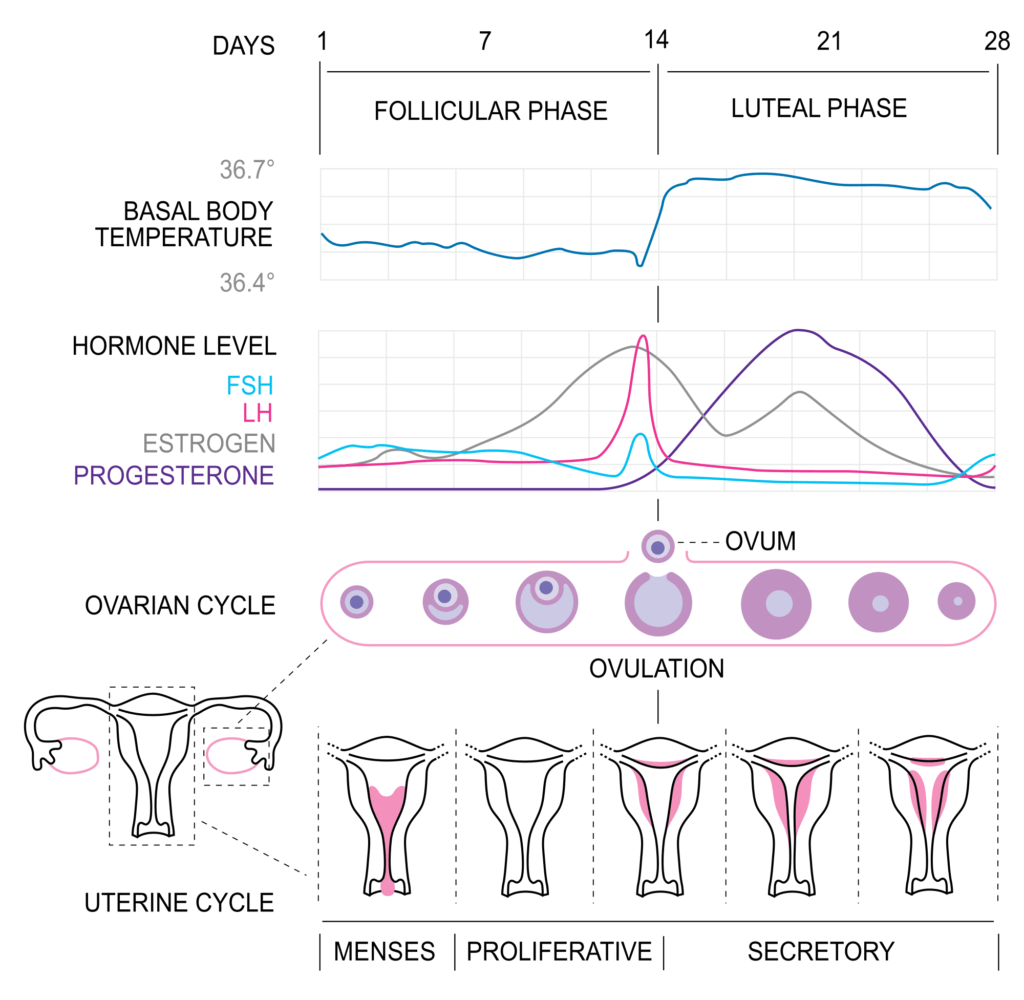
5. Amenorrhea: Absence of Menstrual Periods
Amenorrhea refers to the absence of menstrual periods in women of reproductive age. It can be classified into two types: primary and secondary amenorrhea.
5.1 Primary Amenorrhea
Primary amenorrhea refers to the absence of menstruation in girls who have not yet had their first period by the age of 16. It can be caused by various factors, including hormonal imbalances, genetic abnormalities, or structural issues in the reproductive organs. Weight loss, particularly in cases of extreme or rapid loss, can contribute to primary amenorrhea due to its impact on hormonal regulation.
5.2 Secondary Amenorrhea
Secondary amenorrhea occurs when a woman who previously had normal menstrual periods experiences a cessation of menstruation for three consecutive cycles or more. Weight loss, especially when it is excessive or rapid, is a common cause of secondary amenorrhea. The disruption of hormonal balance and changes in body composition can lead to menstrual irregularities or complete absence of periods.
5.3 Causes of Amenorrhea in Relation to Weight Loss
Amenorrhea related to weight loss can be attributed to the disruption of the hypothalamic-pituitary-ovarian (HPO) axis. The HPO axis plays a crucial role in regulating the menstrual cycle, and weight loss can interfere with its functioning. Caloric restriction, low body fat percentage, and excessive exercise associated with weight loss can trigger the release of stress hormones, which can impact the production of reproductive hormones and suppress ovulation.
6. Polycystic Ovary Syndrome (PCOS)
Polycystic Ovary Syndrome (PCOS) is a hormonal disorder characterized by the presence of cysts on the ovaries and irregular or absent menstrual periods.
6.1 Understanding PCOS
PCOS is a complex condition with various contributing factors, including hormonal imbalances, insulin resistance, and hereditary factors. It is one of the most common causes of menstrual irregularities and fertility issues in women. Weight loss can be beneficial for managing PCOS symptoms but should be approached cautiously to avoid exacerbating hormonal imbalances.
6.2 Link between Weight Loss and PCOS
Weight loss has been shown to improve symptoms in women with PCOS, such as irregular periods, excess hair growth, and insulin resistance. Shedding excess weight can help restore hormonal balance, regulate menstrual cycles, and improve fertility. However, weight loss should be gradual, sustainable, and accompanied by healthy lifestyle changes to ensure overall well-being.
6.3 Management of PCOS Symptoms
Managing PCOS involves a comprehensive approach that includes lifestyle modifications, medication, and regular monitoring. Weight loss through proper nutrition and exercise is an essential component of PCOS management. Additionally, medications such as oral contraceptives, insulin-sensitizing agents, and fertility treatments may be prescribed by healthcare professionals to address specific symptoms and improve reproductive health.
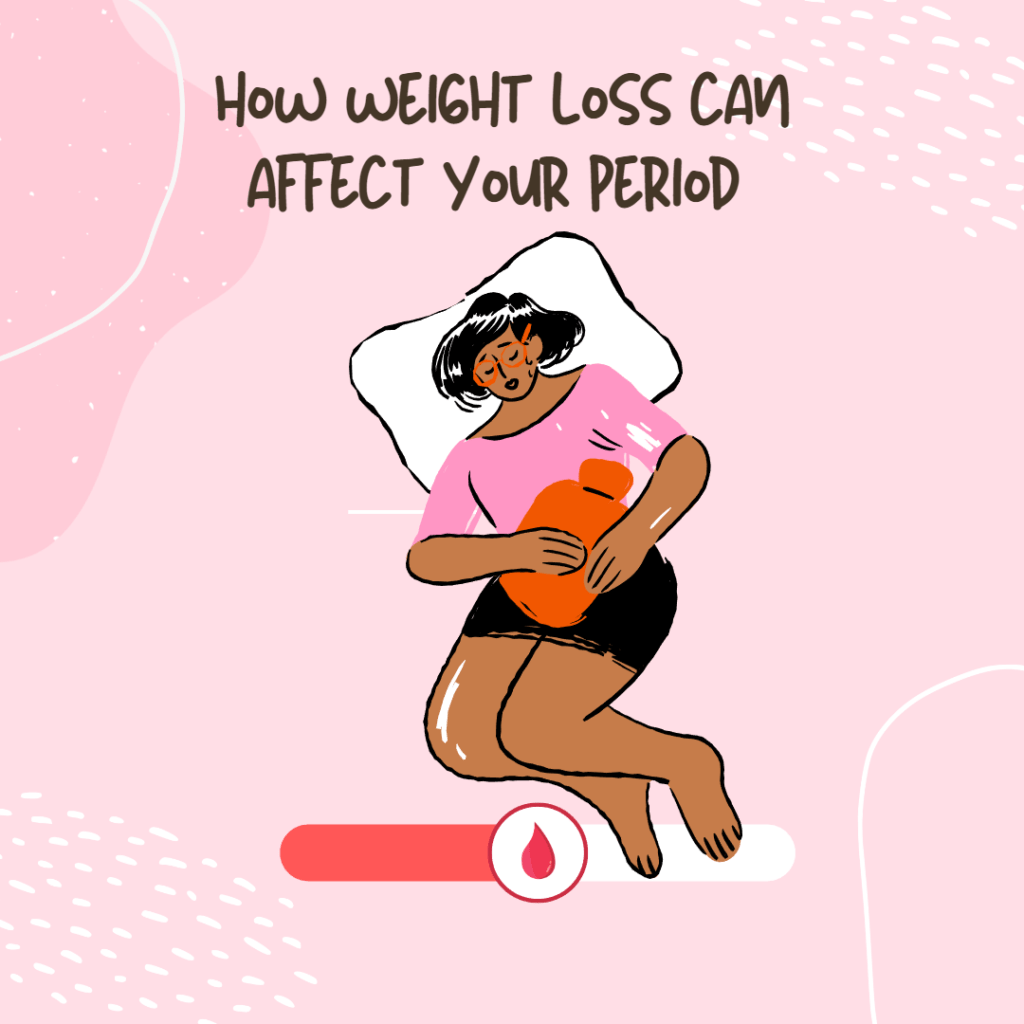
7. Fertility Concerns and Menstrual Changes
Weight loss can have implications for fertility, as it can affect the regularity and predictability of the menstrual cycle.
7.1 Impact on Fertility
Weight loss, especially when done excessively or rapidly, can impact fertility by disrupting the delicate hormonal balance necessary for regular ovulation and the implantation of a fertilized egg. Irregular menstrual cycles and anovulation (lack of ovulation) can make it challenging for women to conceive. It is important to maintain a healthy weight range and approach weight loss with caution if pregnancy is a goal.
7.2 Addressing Menstrual Changes in Relation to Fertility
If you are trying to conceive and have noticed significant changes in your menstrual cycle due to weight loss, it is advisable to consult with a healthcare professional. They can evaluate your specific circumstances, conduct necessary tests, and provide guidance on optimizing fertility. In some cases, additional interventions, such as hormonal therapies or fertility treatments, may be recommended to help regulate the menstrual cycle and improve your chances of conception.
8. Eating Disorders and Menstrual Dysfunction
Eating disorders, such as anorexia nervosa and bulimia, can have severe effects on overall health, including menstrual dysfunction.
8.1 Anorexia Nervosa and Bulimia
Anorexia nervosa is an eating disorder characterized by extreme food restriction and an obsession with achieving a thin body. Bulimia involves episodes of binge eating followed by compensatory behaviors such as forced vomiting or excessive exercise. Both eating disorders can lead to significant weight loss and malnutrition, which can cause hormonal imbalances and disrupt the menstrual cycle.
8.2 Effects of Eating Disorders on Menstrual Cycle
Eating disorders can result in menstrual dysfunction, including amenorrhea, irregular or absent periods, or changes in menstrual flow. The severe caloric restriction and malnutrition associated with eating disorders compromise the body’s ability to produce reproductive hormones, leading to disruptions in the menstrual cycle. In some cases, menstrual dysfunction may persist even after weight restoration, highlighting the long-term effects of eating disorders on reproductive health.
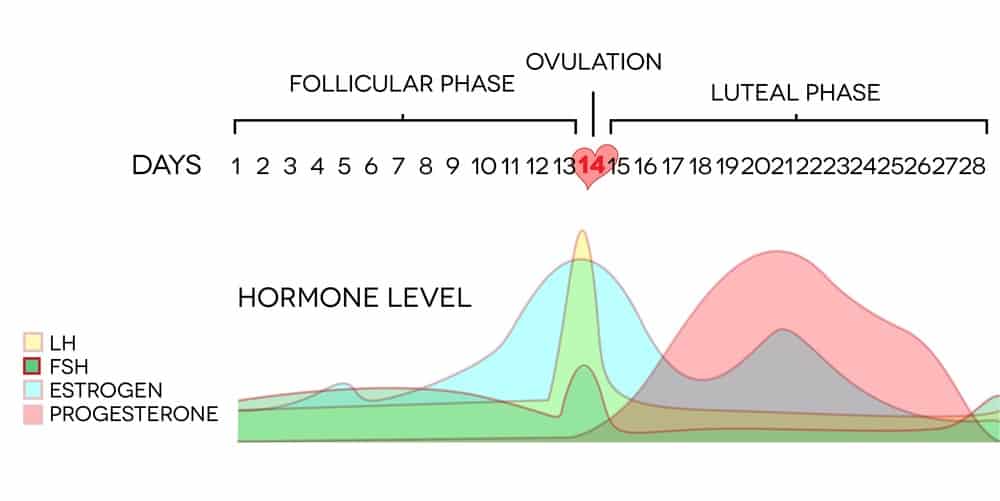
9. Coping with Menstrual Changes during Weight Loss
Experiencing menstrual changes during weight loss can be stressful and concerning. However, there are strategies to help manage these changes and support overall health.
9.1 Healthy Weight Loss Approaches
To minimize the impact on the menstrual cycle, it is crucial to approach weight loss in a healthy and sustainable manner. Aim for gradual weight loss, usually around 1-2 pounds per week, through a balanced diet and regular physical activity. Avoid extreme calorie restriction or excessive exercise, as they can disrupt hormonal balance and impair reproductive health.
9.2 Seeking Professional Help
If you are experiencing significant changes in your menstrual cycle due to weight loss, it is advisable to consult with a healthcare professional. They can assess your specific situation, provide guidance on managing menstrual irregularities, and address any underlying concerns that may be contributing to the changes.
9.3 Tracking and Monitoring Menstrual Changes
Keeping track of your menstrual cycle can provide valuable insights into the impact of weight loss. Use a menstrual tracking app or calendar to record the start and duration of each period, any changes in flow or symptoms, and related factors like weight loss progress or dietary modifications. This information can help you and your healthcare provider better understand the patterns and guide future decisions regarding weight loss and reproductive health.
10. Conclusion
Significant weight loss can indeed lead to changes in the menstrual cycle, including alterations in hormone levels, irregular or absent periods, and changes in menstrual flow. These changes can have implications for fertility and overall reproductive health. It is important to approach weight loss in a healthy and sustainable manner, seeking professional guidance if necessary. Remember to listen to your body, prioritize overall well-being, and address any concerns related to menstrual changes promptly.
